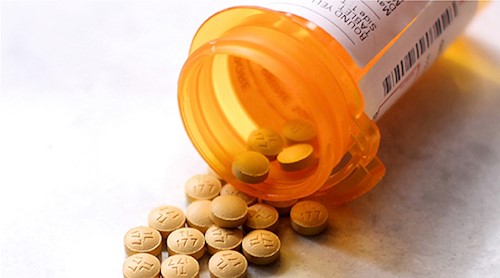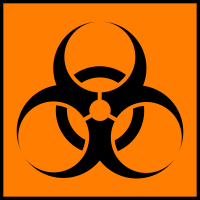

Waste pharmaceuticals include a wide variety of items, such as over-the-counter and prescription medications, controlled substances and sharps, and pet medications. These wastes come in the form of solid pills and capsules, creams, liquids and aerosols. Guidelines for properly managing these wastes differ depending on where the waste is created, handled and disposed.
Find drug take back locations near you and ensure proper disposal by reading the recommendations below for managing household pharmaceuticals.
Buy only as much medication as you can reasonably use before its expiration date. Ask your doctor to prescribe only enough of a new medicine in the lowest dose advisable to see if it will work for you. That way, if the medication doesn't suit you, less would go to waste.
Wisconsin allows certain pharmacies to take back unit doses of drugs for cancer and chronic diseases. Certain drugs can be returned for re-issuance through the Wisconsin Drug Repository. Learn about donating medical items here.
Arrange for proper destruction of a deceased person's medications as soon as possible. A family member or the person responsible for the deceased person's estate can now take the medications to a collection program or mail them to a destruction facility. U.S. Drug Enforcement Administration rules no longer allow hospice and home care staff to manage controlled substances on behalf of their deceased patients. If you have prescription medications containing narcotics or other controlled substances, contact your local police department to find out if the police will accept them.
Whenever possible, take your unused pharmaceuticals to a collection program or event. Before going to the collection site, ask whether to bring medications in their original containers or mixed together in a small, securely sealed plastic bag. Do not bring needles and other sharp items, inhalers, chemotherapy drugs or mercury items (e.g., thermometers) to a medication collection. These items cannot be incinerated along with other medications.
The DEA also now allows mail-back programs for unused household medications. Ask your local pharmacy, police department or healthcare provider if they have mail-back packages for you to use or buy. Be alert for fraudulent mail-back schemes. Legitimate mail-back packages must have pre-paid postage, unique identification numbers and be pre-addressed to a location authorized by the DEA for destroying unused medications. And, when possible, avoid leaving mail-back packages in unsecured rural mailboxes.
If you have no other options, do not flush and do not burn your unused pharmaceuticals. Instead, dispose of them in the trash. Especially when there is a risk of accidental poisoning, overdose or diversion, it is better to dispose of household pharmaceuticals than to hang onto them. When placing unused pharmaceuticals in the trash:
Chemotherapy drugs may affect others living in your home while your body is getting rid of the drugs. Disposable items (such as gloves, adult diapers and sanitary pads) should be sealed in two plastic bags and put in the regular trash. Reusable items (such as clothes and linens that have body fluids on them) may be laundered in a washing machine but should be laundered separately from other clothes. Before washing, store these items in a plastic bag.

List of sharps collection stations in Wisconsin
Medical sharps are often found in household garbage and recyclables or flushed down the toilet. When these needles end up in the waste stream, they can injure waste haulers, landfill operators and recycling facility workers. When they are flushed down toilets, they may cause problems in plumbing and wastewater treatment plants or may end up on our beaches.
To reduce public health risks, Wisconsin rules require all citizens to manage sharps safely. It is illegal to put sharps in the trash or with recyclables. Sharps must be packaged safely and treated either at a licensed medical waste incinerator or by methods that render the sharps non-infectious, broken and unable to be reused. It is not legal to merely solidify sharps.
To help reduce the risk of injury, follow these four steps to get medical sharps ready for safe disposal.
Here are several options for disposing of household sharps:
If you need to use sharps when away from home, you may be able to find sharps boxes in public restrooms in airports, college dormitories, restaurants and highway rest areas. Hotels and motels may offer a small needle box for you to use in your room. You may also carry small sharps boxes to use when these other options are not available.
Some communities offer syringe exchange programs; these encourage illicit drug users to bring in their needles for proper disposal instead of discarding them in the environment.
Information adapted courtesy of the Wisconsin DNR, learn more here.